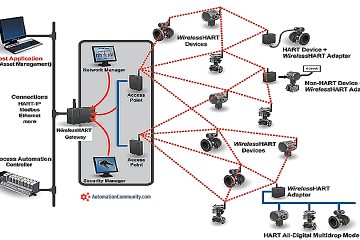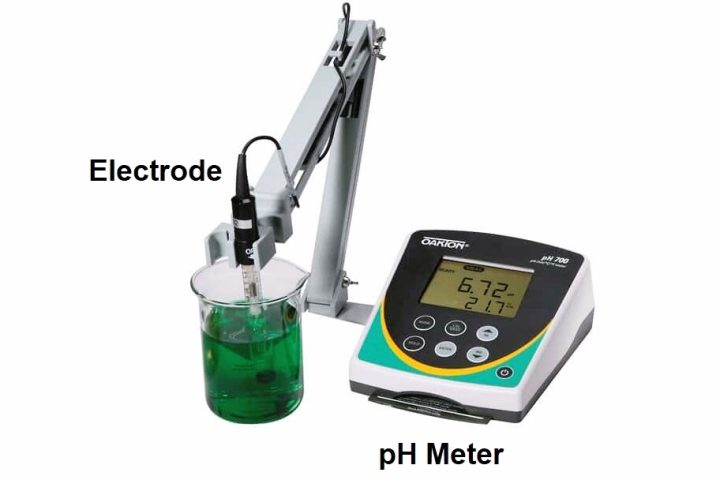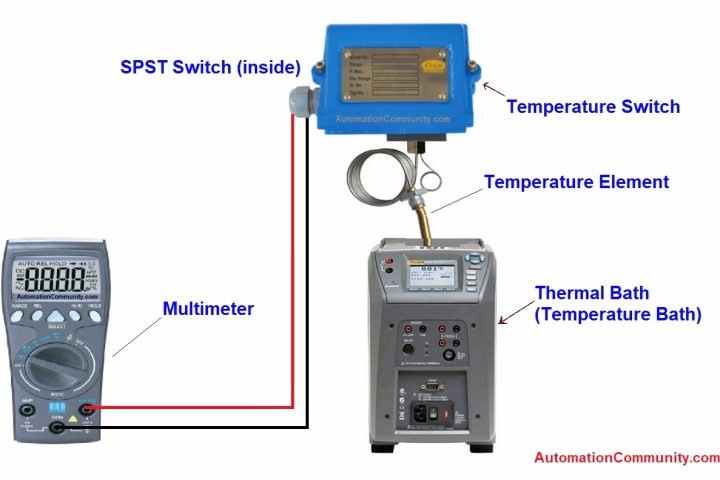Difference Between Accuracy and Precision
There are many terms in our day-to-day use that sound and mean similar but actually, they are not. They are always co-relating, but when we understand them more deeper, then we get to know that there is a vast amount of difference between them.
Two of the most commonly used terms in our regular lives that we always think to be similar are – accuracy and precision.
We always consider both of them to be equal, but there is a good amount of difference between them. Related to our topic of engineering, it is important to get to know both of them properly, so that we can implement them more efficiently in calculations, measurements, and applications.
In this post, we will learn the difference between accuracy and precision.
What is Accuracy?
You are writing an exam and after 3 exams, you found out that you got 98% in one exam and 50% each in other exams. This means that you were very close to the true value (100%) in just one exam. That defines accuracy.
In this example, you were accurate in one exam and inaccurate in the remaining two exams. In other words, accuracy means how close you are to the required result. High accuracy means the target is very close to be achievable.
Accuracy can thus be referred to as the level of correctness of measurement when compared to its true value.
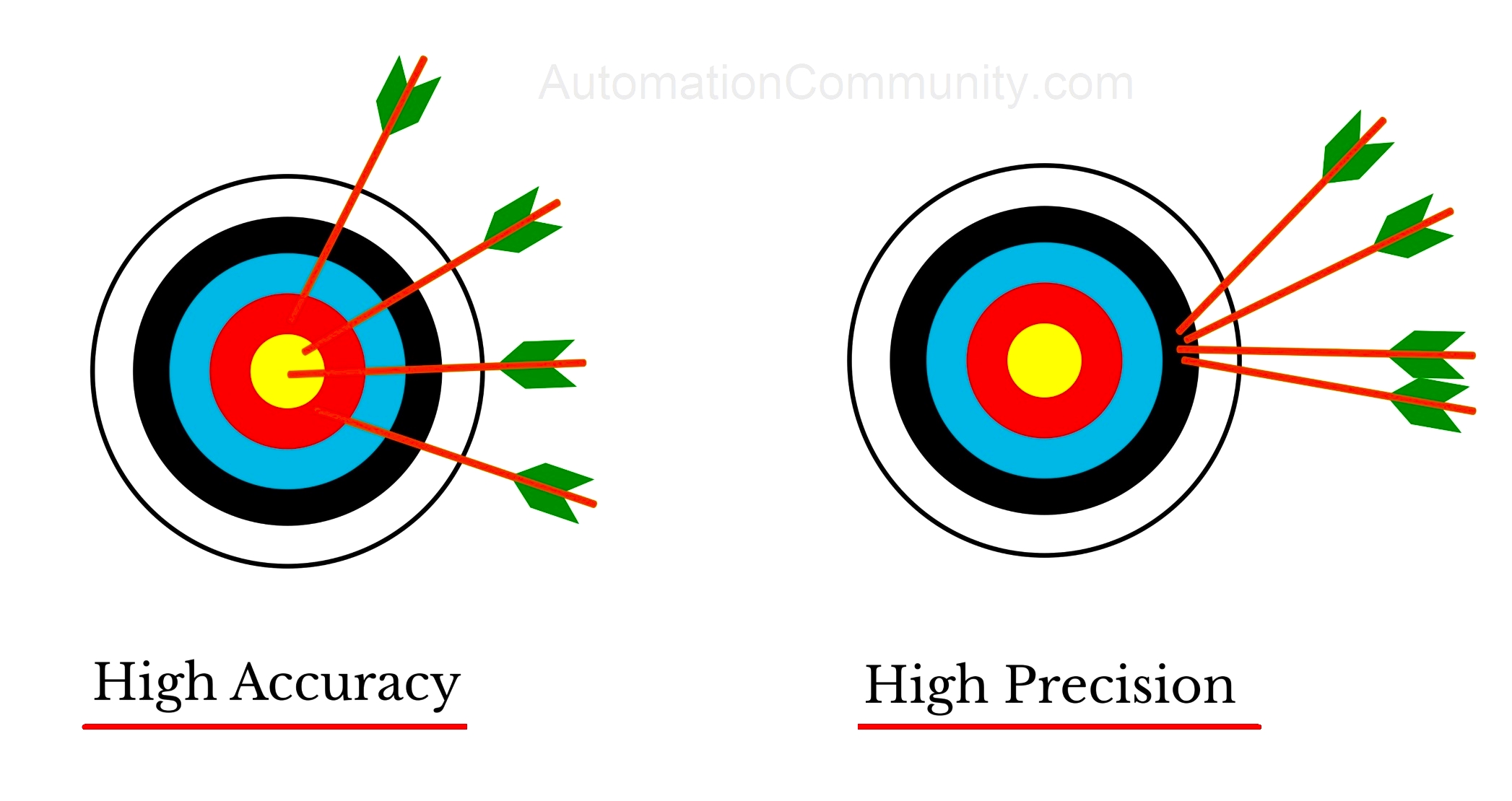
What is Precision?
You are writing an exam and after 3 exams, you found that you got 80% in one exam, 82% in another exam, and 81% in the third exam. See the level of closeness of all three exams. It can be found that though you are not close to 100 %, but are always consistent in bringing the same amount of marks every time. That defines precision.
In this example, you are precise in all three exams. In other words, precision means how close your results are frequently. Be it less or more near the desired result; but if you are always in the same range, that means you are more precise.
Precision thus refers to the closeness of two or more measurements to each other.
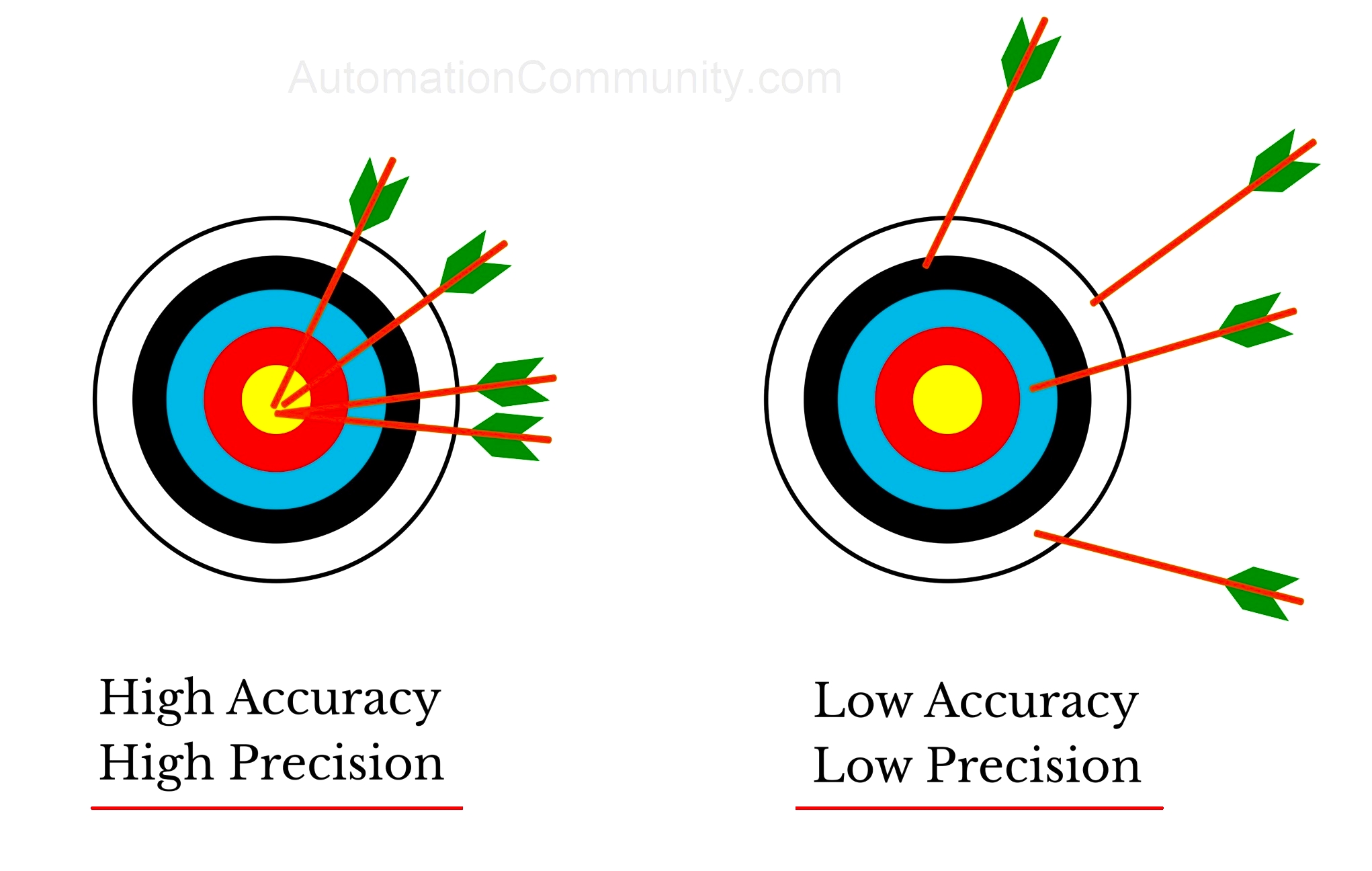
Difference between Accuracy and Precision
- Accuracy means how close you are to the result, whereas precision means how close your results are to each other every time. A good example of highly accurate and highly precise is when you achieve in and around 98% every time. Thus, you can easily identify the difference between the two of them now.
- In terms of instruments, if you are selecting a transmitter, then see its specifications in terms of accuracy and precision. As understood by the terms earlier, it can be easily selectable. You will get to know how accurate the transmitter is and how precise it is every time in giving results. This helps in choosing the transmitter better.
- Accuracy has only one factor for measurement, whereas precision has multiple factors for measurement. Because you cannot decide based on a single conclusion whether you are precise or not, precision is more difficult to calculate than accuracy.
- Accuracy can be precise, but precision is not necessary to be accurate every time.
Example of Accuracy and Precision
Accuracy and precision are two important concepts in data analysis and measurement. They are often used interchangeably but they actually have different meanings.
Accuracy refers to how close a measured value is to the true value. In other words, it is a measure of how close a measurement is to the correct or accepted value. For example, if you measure the weight of a 1 kg weight, and your scale reads “1.01 kg”, then your measurement is accurate because it is close to the true value.
Precision, on the other hand, refers to the degree of reproducibility of a measurement. It is a measure of how consistent a measurement is when it is repeated multiple times. In other words, it is a measure of the variability of repeated measurements of the same quantity. For example, if you use your scale to measure the weight of an object several times, and all the measurements are “1.01 kg”, then your scale is precise.
A common way to visualize the difference between accuracy and precision is by imagining a target board, where the bullseye represents the true value and the surrounding rings represent the possible measurements. When measurements are both accurate and precise, they cluster closely around the bullseye. When measurements are accurate but imprecise, they are scattered around the bullseye. When measurements are precise but inaccurate, they are clustered closely around a spot other than the bullseye.
Accuracy and precision can be compared in a table by displaying the true values and the measured values side by side. The true values can be represented by a column labeled “True Value” or “Accepted Value”, and the measured values can be represented by a column labeled “Measured Value”.
Here is an example of a table that compares accuracy and precision:
| Sample | True Value | Measured Value |
|---|---|---|
| 1 | 10.00 | 9.95 |
| 2 | 10.00 | 9.98 |
| 3 | 10.00 | 10.02 |
| 4 | 10.00 | 9.97 |
| 5 | 10.00 | 10.01 |
In this table, the true value for all the samples is 10.00. By looking at the table, it is easy to see that the measurements are precise because all of them are very close to each other but the measurements are not accurate because they are all slightly different from the true value.
Another example of a table that compares accuracy and precision is:
| Sample | True Value | Measured Value |
|---|---|---|
| 1 | 10.00 | 8.00 |
| 2 | 10.00 | 12.00 |
| 3 | 10.00 | 11.00 |
| 4 | 10.00 | 9.00 |
| 5 | 10.00 | 10.00 |
In this table, the measurements are not precise because they are not close to each other, but they are accurate because they are all close to the true value of 10.00
It is also worth mentioning that measurements can be neither accurate nor precise and also both accurate and precise.
In summary, when comparing accuracy and precision in a table, it is important to look at both the true values and the measured values and consider how close they are to each other, as well as how close they are to the true value.
In this way, we understand the difference between accuracy and precision.
Read Next:




